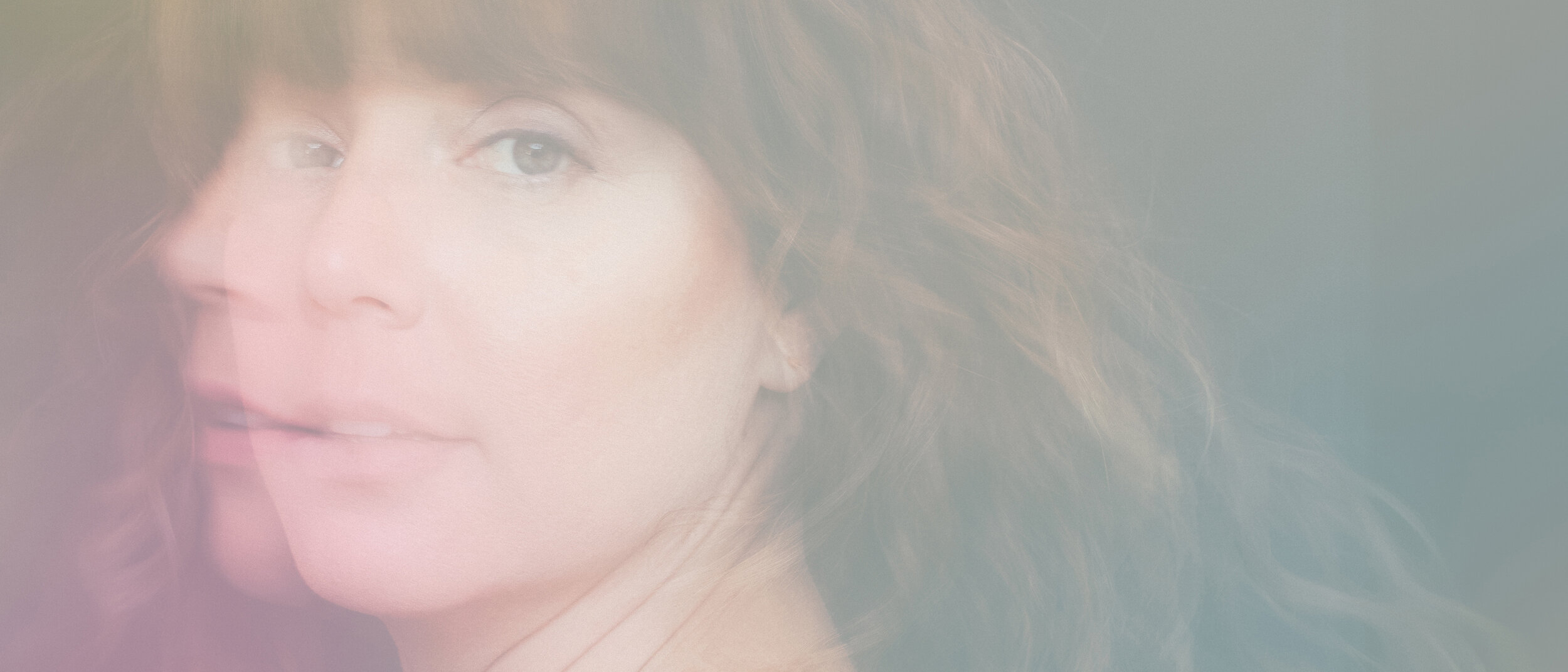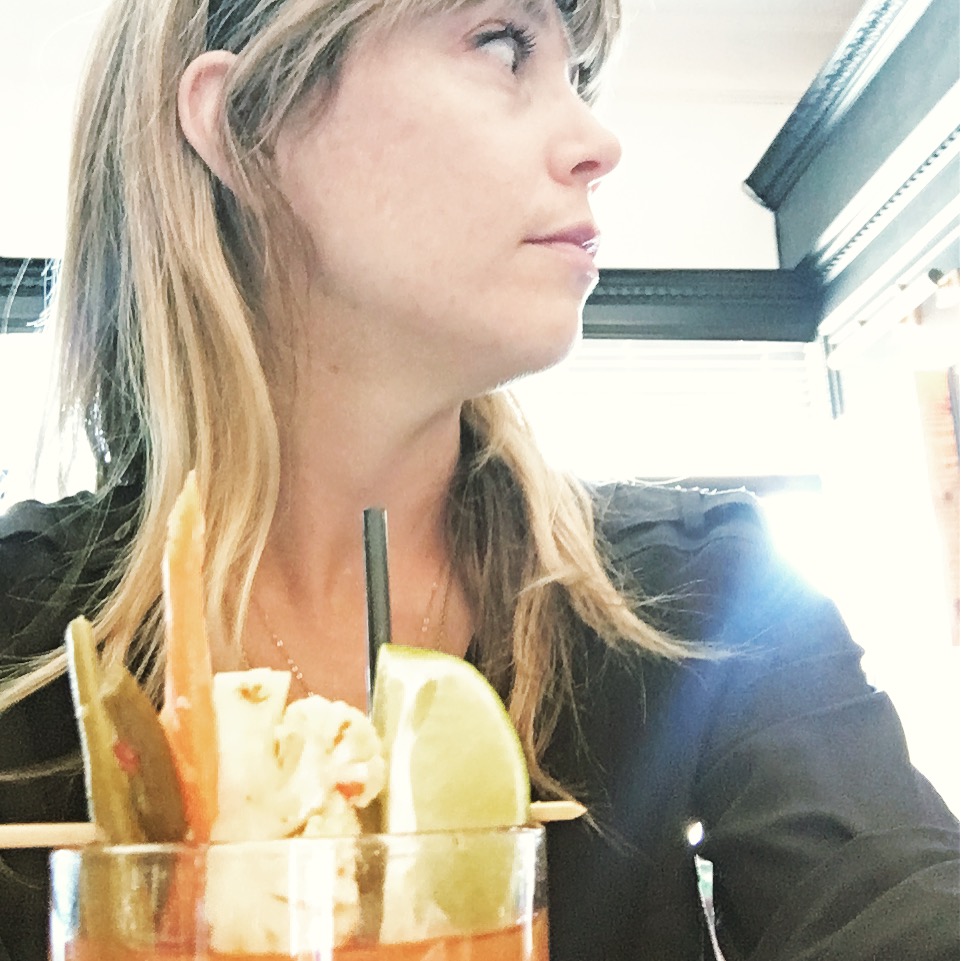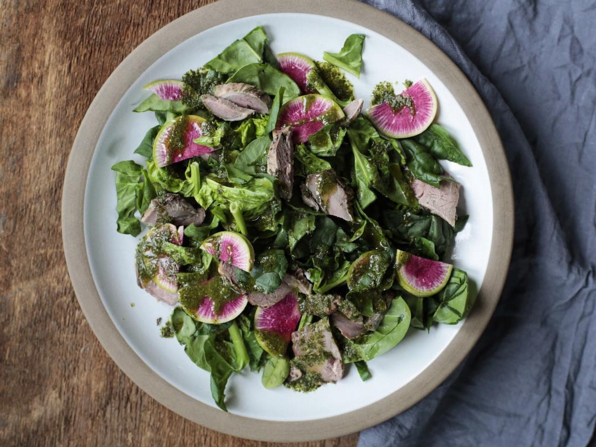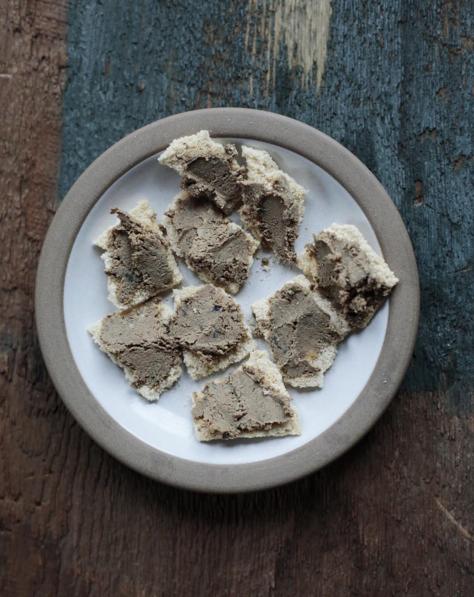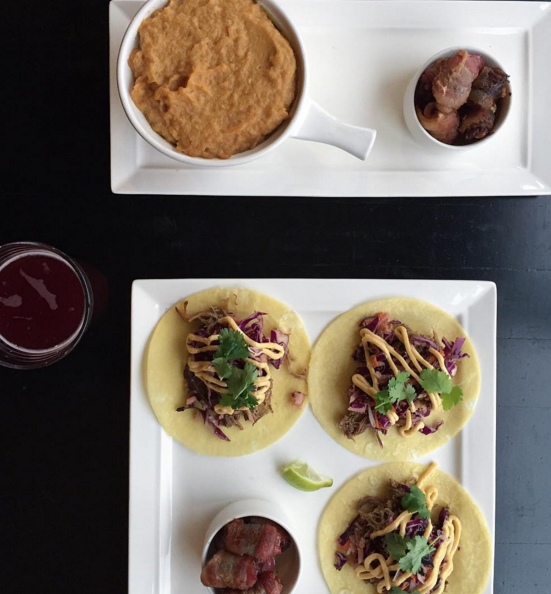There is a mental aspect to this whole "self-awareness, healing and health" thing. It's very important to me and I think oftentimes is seen as second fiddle to food. In my experience it's the other half of the solution. I have been trying to work on self love and acceptance for the majority of this journey and probably the majority of my life. It's hard to self examine. I don't like all parts of myself and it's a difficult to accept your whole self while still striving to become the best version of you. I have a complicated relationship with myself. I'm not always kind.
The body and mind are intrinsically connected. Stress, anxiety, negative thought, judgement (of self or others) can wreak havoc on your digestive system. Stress/anxiety especially will put your body in fight or flight which literally SHUTS DOWN your digestion. If digestion is shut down, all that food coming in is just going to go through whole (which incredibly damaging to the guts) or it's going to rot and ferment where it is. There are a host of different ways for this to manifest which i won't list here but you can read about. It's a fascinating thing and motivates me to commit to not doing more harm by ignoring my symptoms (most of the time.) Besides damage your guts, emotions will store in your body if avoided (or eaten, drank, used etc.) When I started doing yoga, I would cry. I had stored all this energy and emotion in my thighs and when I was breathing and releasing that tension, all of that feeling came flooding back. I'm not making this stuff up, it's called tissue memory!
I know that for me, anxiety and a western diet really did a number on my guts. I'm trying to be patient and love myself now by carefully choosing what i'm ingesting, or putting on my skin. I also need to remember that if i can't work on healing my heart and mind it'll never stick as my lifestyle. There's a reason why I still want to turn to foods that taste good but do NOT make me feel good, in crisis. I can only work on this if i really stop and listen and show up for myself, just like I would for those I care about. It is not easy to be honest with myself, or to be honest and then not self sabotage in spite of myself. I try to re-commit to being a priority every day. Some days, it's easier than others. Building a community of supportive and like minded friends has been so important for my own commitment. It's easy to be like "let's just order pizza" and commiserate. I used to do that, despite how both of us would feel afterwards. It's been such a blessing to have people come over and be like "let's do X instead and talk about what's really going on."
I use some of the resources below to help keep me in line and on track with self love, forgiveness and growth.
Mindfulness Meditation
My (recent) journey began with Mindfulness Meditation. I took a class a couple of years ago with a dear friend of mine and it completely shook my world and turned it upside down. (I actually then took the intro class again, for another 6 weeks.) The benefits of meditation have been scientifically proven. There's no getting around it: meditation helps to reduce stress, improve sleep, lower blood pressure, give space to respond rather than react to a situation, improve focus, increase immunity. Here's a whole list, someone already did this.
For me, it's physically important to keep meditation in my life so that my tendency to stew and fret doesn't hurt my body. It's also nice to feel chill, so an added benefit is general bliss. (Or, what i like to see as "how normal people usually feel".) I like to do it before I go to bed, quieting my mind as i'm going to sleep. If I have time I like to try and do it when I wake up, as well. I've listed some resources below. You can learn to meditate alone or you can try guided meditation if sitting quietly is too intimidating. Personally, I've found it helps me to be a more easy going human. Since my goal is to really learn to let things go, this has been instrumental in helping me do that. It's a practice, to really see the benefits, it's best to make it a habit.
Meditation Resources:
InsightLA -this is where i studied meditation in LA, i love Celeste.
My friend Christina Huntington is also a very gifted meditation teacher.
Oprah and Deepak Chopra - Every year they do a meditation challenge. It lasts 21 days and you get access to free guided meditation.
YouTube - There are tons of free guided meditations or even music to meditate to, on youtube.
10% Happier - This book by Dan Harris is hilarious and reads like a biography, not a self help book. I found it very helpful in inspiring me to continue meditating when I would get lazy. It also has basic instructions on meditation for beginners.
Going to Pieces without Falling Apart - Mark Epstein is one of the more "scientific" meditation proponents. He's a psychologist who has written books about the benefits of meditation and how he uses it in his practice. It's a little more digestible if you're not as into the tone of people like Eckhart Tolle or Deepak Chopra. (If you are, I'm sure their books are great too!)
Therapy
I love therapy. I first saw a therapist as a kid, I must have been 8 years old. It was more of me playing in a sand box and someone writing down what it "meant" but I liked talking to her. Having that foundation was really helpful when I started having panic attacks as a teenager. I felt like no one had ever experienced what I was going through. I was just locked in fear, in my own body and no one else got it. Anxiety is pretty common, so the therapist i saw was like, "oh yeah, we know what this is". I felt less alone, at least. I went back to therapy in College when I couldn't figure out why my college relationship was driving me crazy. I would talk about my anxiety, trust issues etc. It didn't save my relationship but it made me feel better to talk to someone outside my friend group, about what I was struggling with. I've been since I moved to LA as well. It's helped me sort out issues in my relationship and also when i was transitioning from my job to my new career.
I can sympathize with people who think therapy is not for them. I'd like to think that with the right person, it could be for everyone. It's a good idea to shop around, do an initial session with someone to see if it's a good fit. You can generally do that for FREE. Also, there are tons of types of therapy based on the very fact that everyone processes differently: talk therapy, somatic experiencing, behavioral therapy to name a few.
Energy Work
Energy work is a cool new (to me) tool I've started utilizing. There are a bunch of ways to try it. I've only delved into a couple at this point. It's not widely recognized as a traditional therapy in the western world but its gaining traction. Anecdotally I can speak for myself and my group of friends that it helps.
Here's a short list from Yin Yang House.com:
- Qi Gong:
Qi Gong is a broad term used to describe any number of forms of energy healing based on the theories behind Traditional Chinese Medicine (TCM). Within these techniques the practitioner uses his/her intent and energy to stimulate acupuncture points, move energy through the meridians of the body and ultimately to heal disease. This form of healing is popular in China and is gaining acceptance and use around the world. - Reiki:
Reiki is one of the more popular and widely-known forms of energy medicine. There has been research conducted on its effectiveness and you will find it in hospitals and offered by practitioners around the world. It is based on the Chinese concept of Qi (energy) but it differs from Qi Gong in that it is not as focused on specific acupuncture points or meridians. Rather, Reiki is a more spiritually focused practice in that it places a trust in the energy and the body to know how to heal. - Tong Ren Therapy:
Tong Ren Therapy is a technique developed by Master Tom Tam, a prominent Boston area acupuncturist and healer. This form of energy healing is similar to Qi Gong with the addition of the use of the collective unconscious, as defined by Dr. Carl Jung, to heal disease. Tong Ren was originally developed to help people with Cancer, however, it has proven to be helpful in a broad range of conditions such as Multiple Sclerosis, ALS, Parkinson's, Rheumatoid Arthritis and more. - Vibrational Medicine:
Vibrational medicine is another broad category of energy healing. It is based on the idea that energy vibrates at particular speeds or wavelengths and imbalances exist when this energy is not operating at an efficient level. The practitioner may make use of crystals, sounds, colors, magnets or other devices to correct these energetic imbalances and restore health. - Prayer:
Prayer is quite simply the use of Prayer to heal disease. A person may pray for themselves, or have groups or more spiritually developed people pray for them. Recent research has indicated that a group may pray for specific individuals or even groups of people, with or without their knowledge, and influence their health. A good example of a spiritually developed healer who has had remarkable success is Father McDonough, a Boston area Catholic priest who is well known for his tremendous healing abilities. - Healing:
Healing is in many regards a catch all for any practitioner in the energy work field. We mention it here, however, because many people practice healing and advertise themselves specifically as healers. The act of healing may use any technique, from any distance, for any condition and is simply a testimony to the power of energy and the gifts which certain individuals may have developed.
Energy Work Resources:
I use this app called Solfeggio by SonalKiss to do Vibrational Medicine. You listen via earbuds. It's incredibly meditative and calming. There's a frequency that has been reported to heal DNA. I like to use this app by doing one frequency at a time for about 20 mins a day, three days spent on each frequency (using the Earthly Scale). These frequencies are tuned to each Chakra to help you release any blocked energy in those areas.
I've started working with an Applied Kinesiologist in Los Angeles. That was super cool. She does muscle testing where your body is allowed to answer the questions of what you need and what will help you on your way to healing.
Acupuncture can also be a useful tool for Energy Work. Strategically placed needles can help release blocked energy. I've had a similar reaction to acupuncture, while doing energy work, as I do when i have a muscle release emotion. I just try to stay open and willing to breathe through the release.
Journaling
I have found this blog to be extremely helpful surrounding my health issues. When something is difficult to talk about (this has become a trigger for me) writing is a great way of releasing it from yourself. I've written letters to people I never intended to send, journaled for most of my life and now, started this blog. The Artists Way is a great creative workbook that uses stream of consciousness writing as a form release and stimulation during the 3 month program. You just write, don't take your pen off the page, for 3 minutes each morning. They're called "morning pages". It helps to clear your mind before the day begins. I know I feel lighter being able to share this information without the possible threat of judgement in return. I can share what I've tried and learned and researched, you can try if you like or leave it if you don't. It's probably very beneficial to my friends as well because they don't have to hear about it unless they ask.
Orthorexia
This is a topic I wanted to touch on, since I'm talking about the mind and I talk about food all the time. Orthorexia is the condition of being obsessed with eating healthy foods. It is usually coupled with a judgement that some foods are BAD and some foods are GOOD. It's not technically characterized as an eating disorder but is seen as mentally similar to anorexia or bulimia. Generally speaking, the obsession is a projection of underlying mental factors such as: needing to be in control, fear, body image issues etc. There are a lot of resources available for those struggling to figure out the balance of eating healthy and not developing an obsessive relationship around food.
No food is inherently bad or good. Some food is more nutrient dense or bioavailable and therefore may serve the body better. However, focusing on food very intently can become unhealthy without perspective. As I mentioned yesterday, no one diet is going to fit a person for the rest of their life. There's no RIGHT food.
Deal with it
I've found that it's so imperative for me to be open and honest with myself about my emotional state, in order to really feel my best. Food plays a large part in that relationship right now, since eating certain foods can cause sort of "untrue" or "unfounded" emotions in me. I've learned a lot about who i am and what i want in my life by being willing to examine discomfort, sit with it and try to sort out what's really going on. Meditation has been an invaluable tool for that. There's stigma attached to vulnerability and feelings. They're often seen as weakness, and therefore avoided, or "soldiered through". Brené Brown said it best: "To feel is to be vulnerable. To believe vulnerability is weakness is to believe that feeling is weakness... Vulnerability is the birthplace of love, belonging, joy, courage, empathy, and creativity. It is the source of hope, empathy, accountability and authenticity. If we want greater clarity in our purpose or deeper and more meaningful spiritual lives, vulnerability is the path."
I'm still figuring it out as I go. There's a reason why I run with an undercurrent of anxiety. I'm working on examining that and forgiving myself for being who I am as I'm learning to fuel myself in a healthier way. There's no question that being more "self aware" is hard. I beat myself up for beating myself up. I struggle with self forgiveness but preach its importance to my friends. I have a bad day and then harp on myself for not being more patient, or talking too much, or being bossy when i'm actually just trying to be helpful. I lay awake at night and cycle through all the terrible things i've done or decisions i've made and just guilt and shame myself. (Hello! Thank you meditation for helping me go to sleep!) I'm lucky to have built a community of positivity, love, trust and openness in my friends and my husband. It's a journey and the food and health stuff won't ever stick if I don't keep up with the rest.
